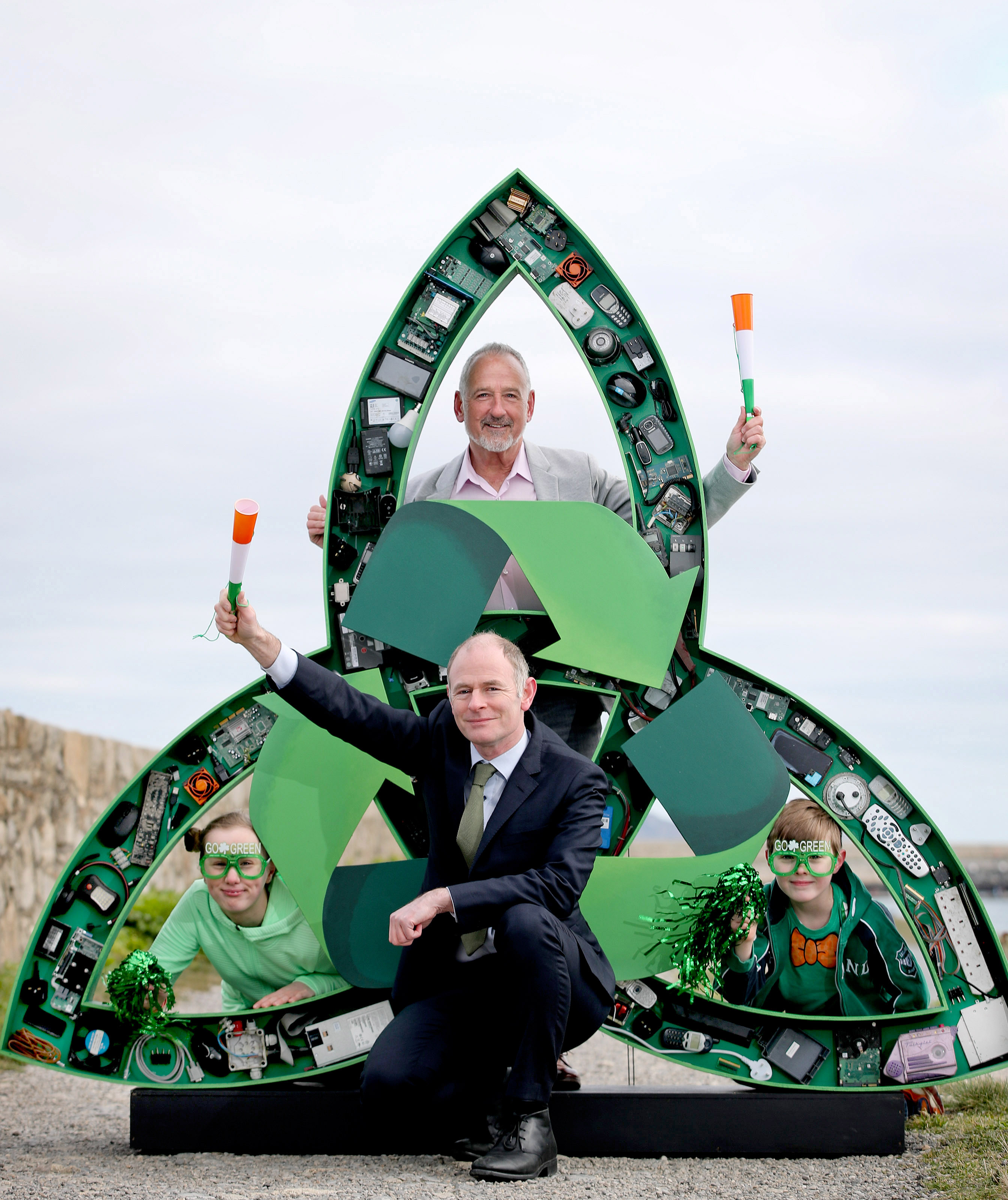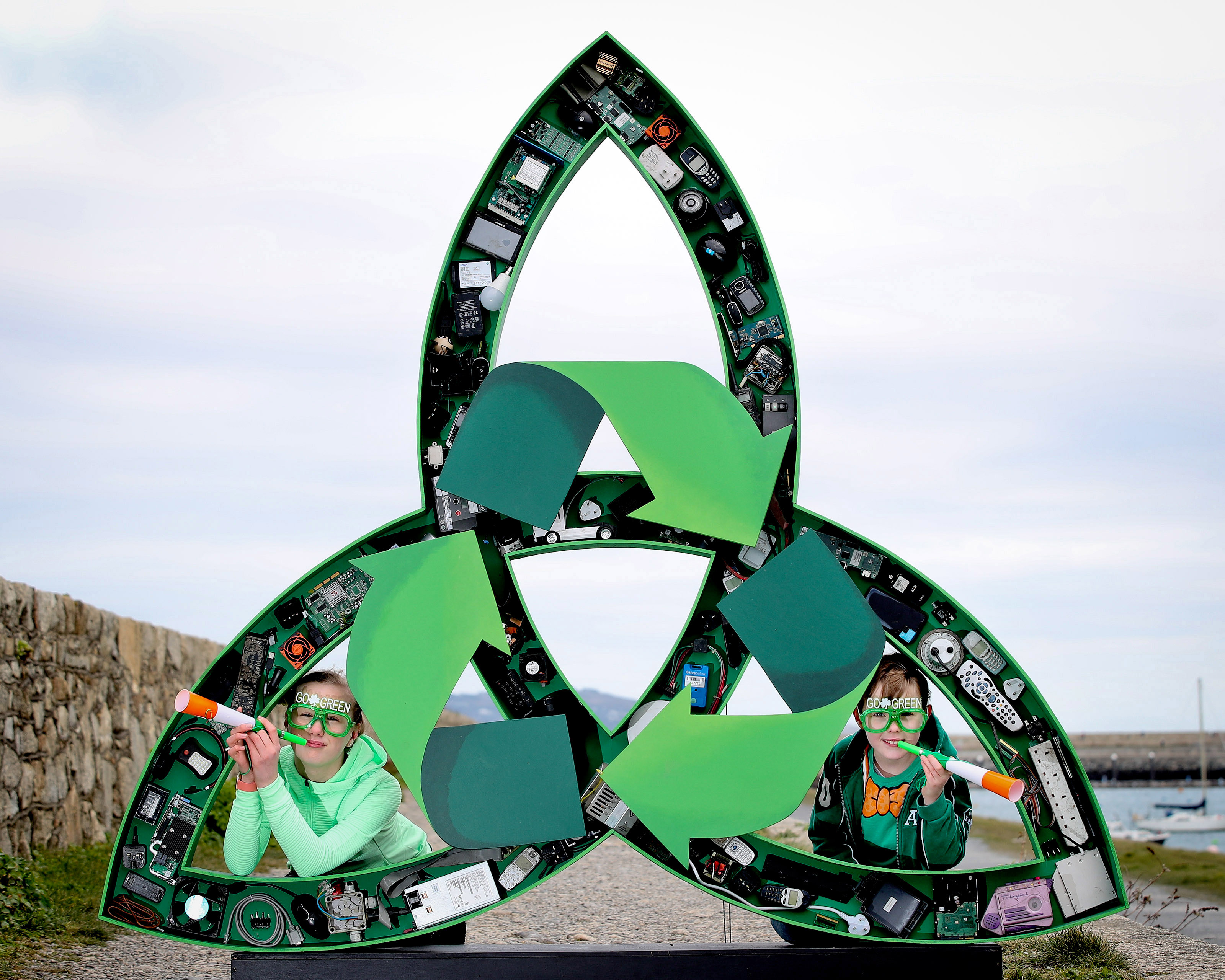
ERP and Minister of State encourage Ireland to Go Green and use the extra holiday to Recycle this St Patrick’s weekend
The European Recycling Platform (ERP), Ireland’s only pan-European compliance scheme for WEEE and Waste Batteries, today released figures highlighting a further increase of electronic waste recycling during year two of the Covid-19 pandemic with over 6 million electronic items collected by the scheme in 2021 up from 5.6 million in 2020. Overall, ERP Ireland identified a 2.55% increase in electronic waste recycling per person and highlight a 9% increase in the recycling of COLD appliances including fridges and freezers, and a 10% increase in small domestic appliances (SDA).
These results come as Ireland prepares to enjoy an extra once-off public holiday on 18th March as the international community marks Global Recycling Day which recognises the importance that recycling plays in the future of our planet. Minister of State at the Department of Environment, Climate and Communications, Ossian Smyth TD and ERP want to encourage the people of Ireland to Go Green over this St Patrick’s weekend and use the extra holiday to Recycle their unused electrical items gathering dust in their homes.

ERP Ireland also announced results of the second ‘Recycling Habits during Covid-19’ study by Coyne Research, which highlights recycling behaviours in year two of the pandemic, identifying items recycled, items repaired, as well as items kept unused in the family home and the reasons for hoarding them. The nationally representative online survey carried out amongst 1,000 adults aged 18+ years, revealed that:
- A kettle continues to be the most recycled item – with 3 in 10 claiming to have recycled a kettle within the past 12 months (29%). Plugs/cables/chargers (20%), TV (17%), large kitchen appliances (16%), vacuum cleaners (15%) and phones (15%) amongst the top items recycled.
- Two-thirds of respondents have unused electrical items in their home. 1 in 5 have DVD/Video players and video recorders unused. 16% have an unused sewing machine, whilst 14% have an unused iPod/MP3 player.
- The possibility of using the electrical item again remains the primary reason for holding onto unused items followed by not having got around to recycling it yet. Circa 1 in 10 are holding onto unused electrical items for nostalgic reasons.
- Gen Z much more likely to be holding onto unused electrical items for nostalgic reasons and believing it might be worth something in time. Baby Boomers most likely to cite that they may use the electrical item again.
- Approximately 1 in 7 still have their first PC/Laptop or iPhone/Nokia/Mobile phone.
- 1 in 12 have repaired a large kitchen appliance in the past 12 months. Highest incidence of repairing PC/laptop, telephone/mobile phone, and a lawnmower/strimmer/hedge trimmer within the past 12 months – 7% have repaired a PC in the last 12 months.
The research also pointed out that just under 1 in 3 Irish adults now claim to understand the meaning of Circular Economy (+7% vs. 2021). Millennials (36%), those living in Dublin (36%) and males (34%) most likely to claim to have an understanding. Traditionally, economies in the developed world have been based on a “take, make, dispose” model. A circular economy is based on long-life products that can be renewed, reused, repaired, upgraded, and refurbished to preserve precious natural resources, protect habitats, and reduce pollution.

Commenting on the second ‘Recycling Habits during Covid-19’ research survey, Minister of State at the Department of Environment, Climate and Communications, Ossian Smyth TD said, “We are delighted to see behavioural change through the pandemic and hope this continues thereafter. We commend ERP for their work in recycling electrical waste and batteries. We are currently consuming at a rate that requires three planets. This is unsustainable. A circular economy provides us with the opportunity to consume fewer resources and to extend the productive life of the objects we buy and use. Ireland’s waste management policy has long prioritised waste prevention and this has been the starting point for the growth of circular economy thinking. Our goal is to have a circular economy that reduces Ireland’s carbon impact and protects our natural resources, environment, and health. Along with Martin Tobin, CEO of ERP Ireland, we would encourage Irish people to use their extra day’s holiday to clear out their attics and sheds and recycle their unused electronic waste.”
Martin Tobin, CEO, ERP Ireland said: “In Ireland, we have seen significant increases in domestic waste presented for collection and recycling. Consumers are increasingly more environmentally aware and we have seen people’s recycling activities change for the better but many are still hoarding electrical items for various reasons. We are encouraging Irish people to go green for St Patrick’s Day and put their unused electrical items to better use by recycling at their local electrical retailer or recycling centre
– Lá Fhéile Pádraig sona duit!”
